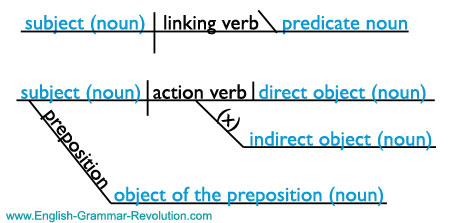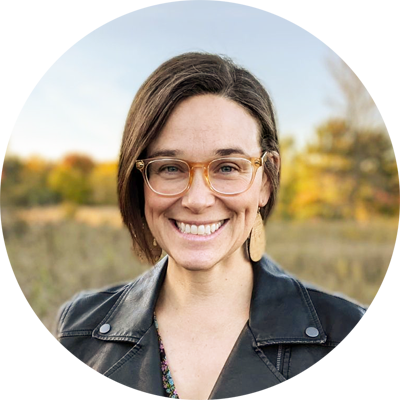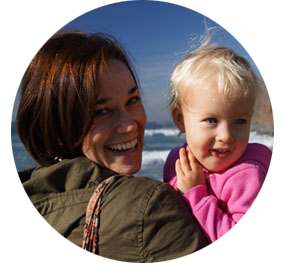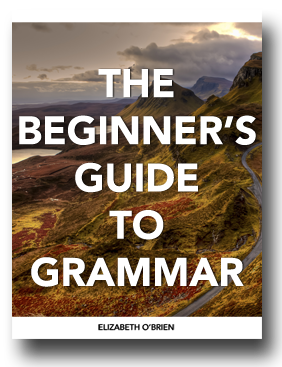📘 Download your free grammar guide here. 📘
📘 Download your free grammar guide here. 📘
What are collective nouns?
What are collective nouns?
- Home
- Parts of Speech
- Nouns
- Collective Nouns
What are collective nouns and are they singular or plural?
Stop right there! Let's not get ahead of ourselves. First, let's review what nouns are.
Nouns are one of the eight parts of speech. They name people, places, things, or ideas. Read the noun page to learn more. Okay, now that you remember what nouns are, let's get back to the main question!
Collective nouns refer to groups of people, animals, or things. They are one of the categories of nouns.
audience, band, class, club, crowd, collection, committee
family, flock, group, herd, team
Here are some example sentences.
Our class went to the museum today.
The audience clapped wildly at the end of the play.
I love my stamp collection!
A class is made up of a group of students acting as one whole.
An audience is made up of a group of people acting as one whole.
A collection is made up of a group of things (in this case, stamps) acting as one whole. Do you sense a pattern here? I sure do.
Different Words For Different Things
Some collective nouns can be used for just about any group of objects (bunch) but others are used for specific things. If we wanted to talk about a group of cows, we would use the collective noun herd.
The herd of cows grazed on the fresh grass.
But if we wanted to talk about a group of birds, we would use the word flock.
A flock of birds landed near the lake.
Here are a few more.
We watched the school of fish.
A pack of wolves lives in the woods behind my house.
A herd of deer stood in the cornfield.
Many of these special words are ones that we may not know off the top of our heads.
A kindle of kittens
A mess of iguanas
A drove of horses
A bloat of hippos
If you're unsure of the word to use, you can do a quick Google search for What do you call a group of _____?
Singular or Plural?
Singular means one. Plural means more than one.
Do you think that collective nouns should be singular or plural? (It's important to know this so that you can have the proper subject verb agreement.)
I'll give you a hint. They name many things that come together to act as one group.
If you said singular, you're right!
If you said plural, you're also right!
What? It's crazy but true.
Collective nouns can be singular or plural
depending on the context of the sentence.
They're usually singular.
They are usually singular because they focus on the individual elements acting together as one unit. In these cases, use a singular verb to match the singular subject.
The team is winning! (Team is seen as one unit.)
The herd is following the shepherd. (Herd is seen as one unit.)
They can also be plural. When the sentence is highlighting the individuals among the group, the noun is plural. In these cases, use a plural verb to match the plural subject.
The team are cooperating well tonight. (Team is seen as many individuals.)
The herd are running in all different directions! (Herd is seen as many individuals.)
What's The Subject?
We often use the prepositional phrase of ________ after a collective noun in order to describe what the group of things is.
The flock of geese honked as it flew over my house.
Flock is a collective noun and of geese is a prepositional phrase. When you look at that sentence and try to pick out the subject, you might be tempted into thinking that geese is the subject, but subjects will never be in prepositional phrases. The subject of that sentence is flock.
One more thing to note is that if you use the prepositional phrase of something after a collective noun, the something should be plural (herd of sheep, pack of wolves, collection of stamps). Sheep, wolves, and stamps are all plural.
Sentence Diagramming
Diagramming sentences is the bee's knees. Sentence diagrams show us the relationship between words, phrases, and clauses in sentences.
If you've never diagrammed before, the following image might give you a small heart attack. If that is the case, I hope that you quickly regain your health when you realize that if you learn to diagram step-by-step, it's easy, fun, and awesome.
So, nouns can perform many jobs in sentences. Here are some of the noun jobs and how you would diagram them.

If you'd like to teach or learn grammar the easy way—with sentence diagrams—check out our Get Smart Grammar Program.
It starts from the very beginning and teaches you grammar and sentence diagramming in easy, bite-size lessons.

Hello! I'm Elizabeth O'Brien, and my goal is to get you jazzed about grammar.
Elizabeth,
I am ecstatic with the grammar program. I am working on lesson 6
already. I just received your books, and they're fabulous. Thank you,
thank you. I know I will be the grammar queen by the end of the summer
holidays.
- Clare
This is original content from https://www.english-grammar-revolution.com/collective-nouns.html
Our Free Guide Gives You A Fun Way
To Teach And Learn The Basics v

Elizabeth O'Brien is the creator of Grammar Revolution.
Her lessons are guaranteed to give you more confidence in your communication skills and make you smile. :)

